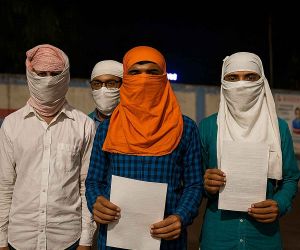MORE COVERAGE
Twitter Coverage
Satyaagrah
Written on
Satyaagrah
Written on
Satyaagrah
Written on
Satyaagrah
Written on
Satyaagrah
Written on
JOIN SATYAAGRAH SOCIAL MEDIA
Under Taliban rule: Humanitarian catastrophe escalating rapidly in Afghanistan, Hunger forces Afghans to sell young daughters into marriage to ensure the survival of the rest of the family members
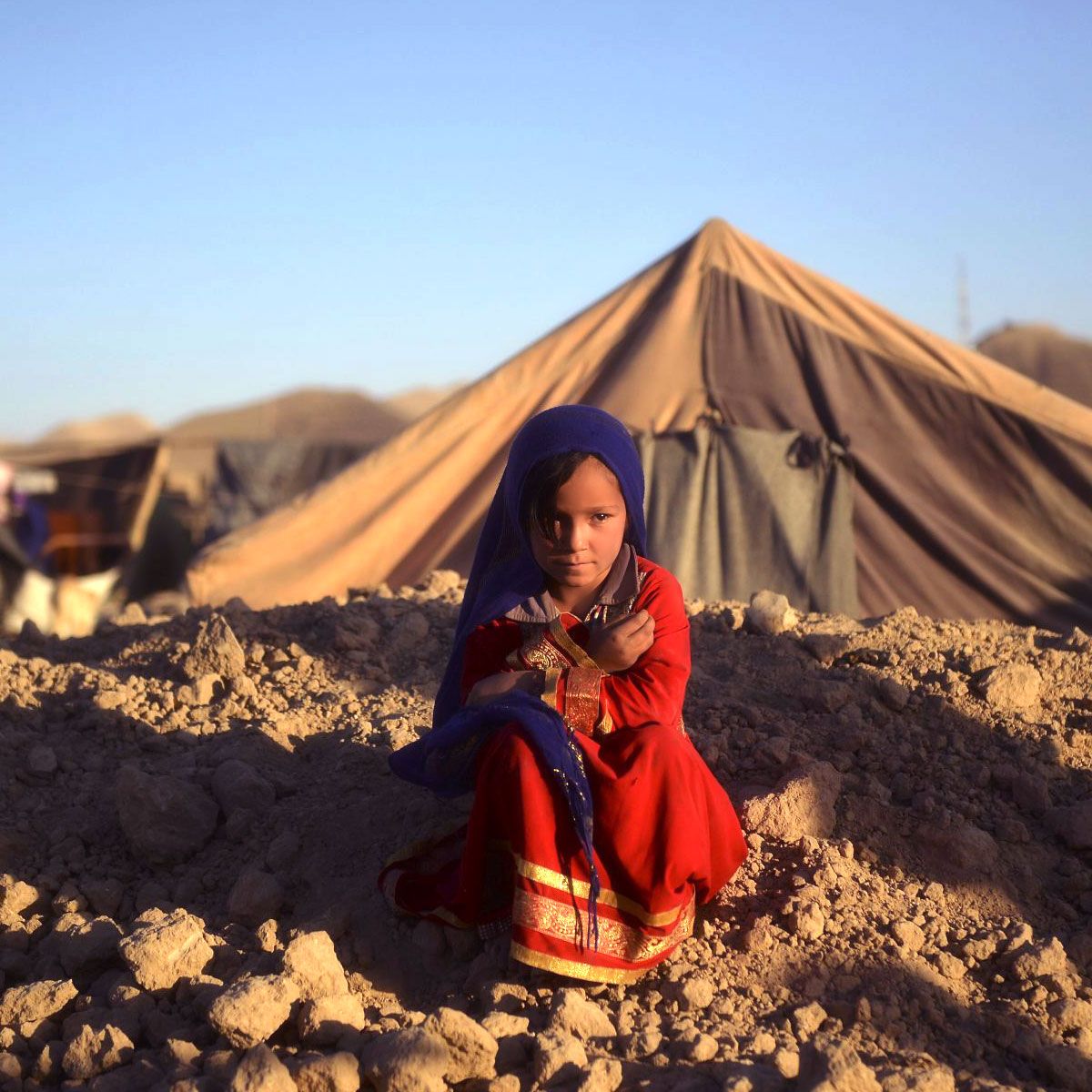
The humanitarian catastrophe in Afghanistan is rapidly escalating since the Taliban seized power on August 15, halting most economic activities and plunging the country into a crisis.
Poverty-stricken Afghan families are being left with no option but to sell off their young daughters in lieu of money and basic sustenance that would ensure the survival of the rest of the family members.
In recent months, many displaced Afghan families facing hardship and starvation have been forced to make the distasteful decision to sell off their barely adolescent daughters to men 4-5 times their age, as per reports.
|
One such disturbing story is that of a 9-year-old Afghan girl named Parwana Malik. According to a report by CNN, Parwana’s family sold her to a 55-year-old man named Qorban last month who paid 200,000 Afghanis (about $2,200) in the form of sheep, land and cash to Parwana’s father in exchange for the minor girl.
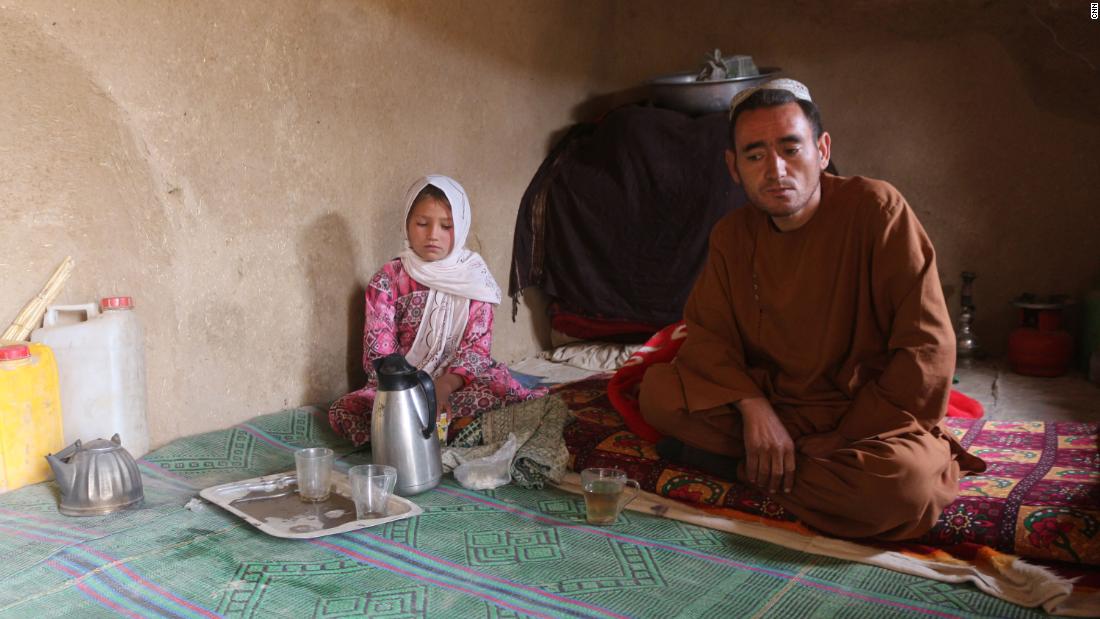 Parwana Malik, 9, and her father Abdul, in their home at a camp for internally displaced people in Afghanistan's Badghis province. |
Parwana’s family of eight, who have been just scraping by at a camp for internally displaced people in the war-torn country’s Badghis district, said they had no choice since jobs were few and foreign aid had dried up since the Taliban took power on August 15.
Speaking to CNN, the distressed and regretful father Abdul Malik revealed that prior to selling off Parwana, he had sold another 12-year-old daughter a couple of months ago. Now he’s been forced to sell another daughter “in order to keep other family members alive.” This decision he said has left him “broken with guilt, shame and worry”.
CNN quoted Abdul Malik as saying: “We are eight family members. I have to sell to keep other family members alive.”
Malik said he had worked tirelessly to find a way to keep his girls from being sold. He went to the provincial capital city of Qala-e-Naw to look for jobs and even borrowed “a lot of money” from relatives, while his wife resorted to begging for food from other camp inmates. But, in order to feed his family, he felt he had no choice.
Parwana, meanwhile, revealed that she wished to study and become a teacher. However, due to her family’s severe financial situation, she is unable to pursue this opportunity. When asked about her impending “marriage,” she expresses concern that the “old man” will beat her and make her labour in his home.
Though extremely heart-breaking, Parwana’s situation is far from being unique. Many more Afghan families have been forced to endure similar anguish in order to survive under the Taliban regime.
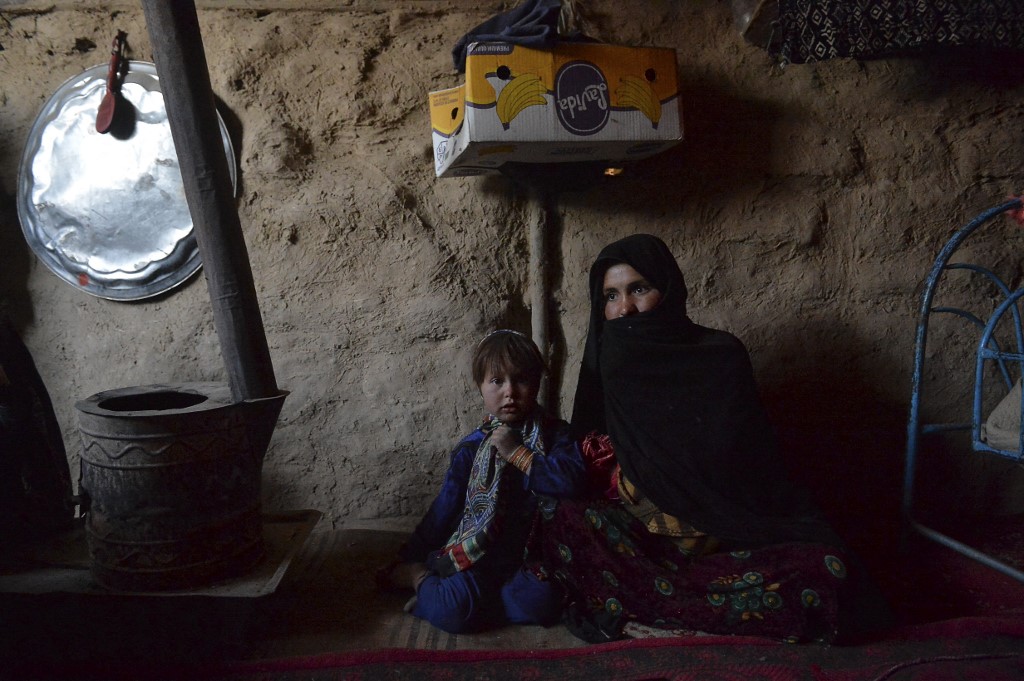 |
'Absolutely cataclysmic'
Since the Taliban's takeover, stories like Parwana's have been on the rise.
Though marrying off children under 15 is illegal nationwide, it has been commonly practiced for years, especially in more rural parts of Afghanistan. And it has only spread since August, driven by widespread hunger and desperation.
More than half the population is facing acute food insecurity, according to a United Nations report released this week. And more than 3 million children under age 5 face acute malnutrition in the coming months. All the while, food prices are soaring, banks are running out of money and workers are going unpaid.
Nearly 677,000 people have been displaced this year due to fighting, according to the UN Office for the Coordination of Humanitarian Affairs (UNOCHA). Many of them live in tents and huts in internal displacement camps like Parwana's family.
"It's absolutely cataclysmic," said Heather Barr, associate director of the women's rights division at Human Rights Watch. "We don't have months or weeks to stem this emergency ... we are in the emergency already."
The problem is particularly acute for Afghan girls, who have stayed home and watched their brothers return to secondary school since the Taliban takeover. The Taliban said it is working on a plan to allow girls to return too, but have not said when that could happen or what conditions may be imposed.
The uncertainty combined with rising poverty has pushed many girls into the marriage market.
 Men sitting at a camp for internally displaecd people in Qala-i-Naw, Badghis province, on October 17. |
Hunger and poverty
Last month ANI had reported how poverty and hunger had compelled an Afghan woman, who was displaced from the Baghlan province to Kabul after the Taliban take over, to sell her one and a half-year-old infant for treating her another 13-year-old daughter, who was very sick and needed immediate treatment. Lailuma, who used to live in a tent in Kabul had sold her baby for 30,000 Afghani (INR 24,850 approximately).
Meanwhile, another mother Fahima cried inconsolably after her husband was compelled to sell their six-year-old Faristehand 18-month-old Shokriya to withstand the poverty that has engulfed western Afghanistan since the emergence of the Taliban at the helm of affairs.
“My husband said if we don’t give away our daughters, we will all die because we don’t have anything to eat,” said Fahima, echoing the sentiments of many such impoverished Afghan families.
Though extremely disturbing, this woeful practice is not new in Afghanistan. In fact, it’s reminiscent of the Taliban rule in the 1990s (Taliban 1.0) when the poverty-driven Afghan families too, were forced to go through a similar ordeal in order to survive.
When the Taliban took over Afghanistan many women had come up to narrate their ordeal during the Taliban rule in the 1990s.
“Living under the rule of the Taliban regime is like being in an abusive relationship. At first, it’s good. They make lots of promises, they watch their steps, they even deliver on some of their promises. But while you are being lulled into a false sense of security, they are making their plans,” BBC quoted one Afghan lady Friba as saying.
Friba narrated her story of how her family were torn apart when her father disappeared during Taliban rule in 1999. “Life under the Taliban went from a living hell to a black hole of hopelessness. As we watch the news of the Taliban taking over Afghanistan again I fear that history will repeat itself. I am married now and live in England. But I am afraid for my mother, sisters and brother who are still in Afghanistan, and for the millions of families who will suffer pain and loss as we did. Their only crime, being born in Afghanistan,” Friba rued.
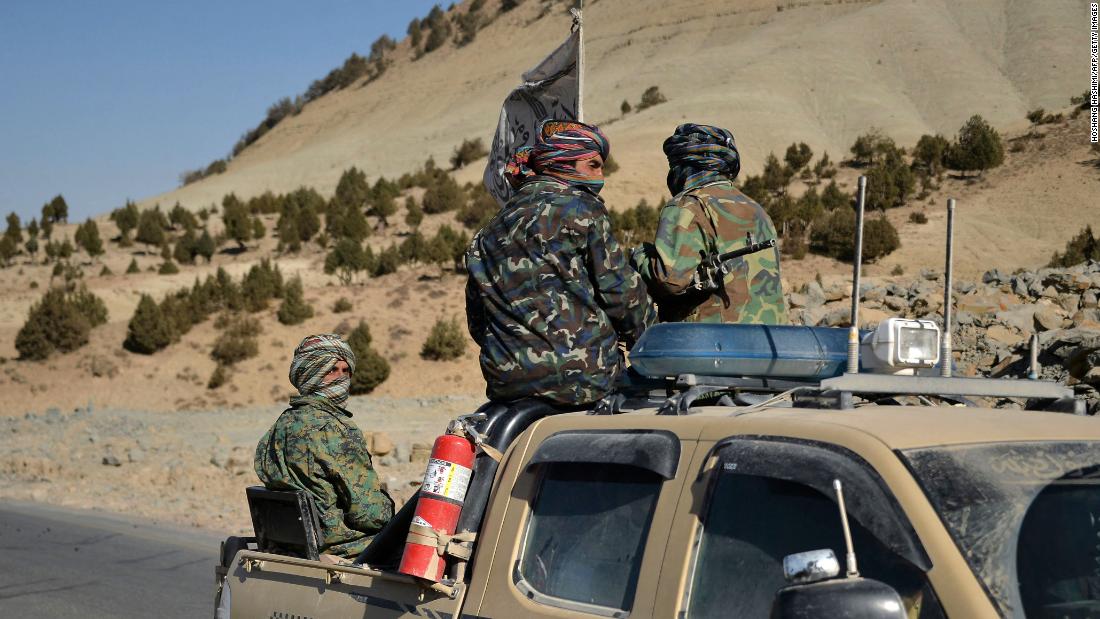 Taliban fighters on a pick-up truck along a road in Band Sabzak area in Badghis province, Afghanistan, on October 17. |
International funding dried up
Local Taliban leaders in Badghis say they plan to distribute food to stop families selling their daughters. "Once we implement this plan, if they continue to sell their kids we will put them in jail," said Mawlawai Jalaludin, a spokesperson from the Taliban's Justice Department, without elaborating.
But the problem stretches beyond just Badghis. And as winter approaches, both the Taliban and humanitarian groups are pleading for more aid, hoping it could stem the rise in child marriages.
The Taliban's rapid takeover of Afghanistan as the United States and its allies withdrew prompted the international community to halt development assistance -- money that had been vital in propping up the country's economy and key services.
Countries and multilateral institutions have been reluctant to renew pledges for fear of appearing to legitimize the Taliban as Afghanistan's leaders.
With the country's economy close to collapse, UN donors pledged more than $1 billion in humanitarian aid in September, of which $606 million would meet Afghans' most pressing needs. But less than half those pledged funds have been received, with some member states who have not yet paid, according to a UNOCHA spokesperson.
Several of the families and experts CNN spoke with expressed frustration at the shortage of aid during the country's direst hour.
Isabelle Moussard Carlsen, head of office at UNOCHA, emphasized that humanitarian aid workers were still on the ground, providing relief and supporting hospitals -- but it's not enough.
"By not releasing the (development) funds that they are holding from the Taliban government, it's the vulnerable, it's the poor, it's these young girls who are suffering," Carlsen said.
Barr and Carlsen acknowledged the need for world leaders to hold the Taliban accountable for human rights violations -- but they warned the longer Afghanistan goes without development assistance or injected liquidity, the more families face death by starvation, and the more girls are likely to be sold.
The Taliban has also appealed for aid. "The Taliban is asking aid agencies to come back to Afghanistan and help these people," said one Taliban director of an internal displacement camp in Ghor province. "I'm requesting the international community and aid agencies, before the winter comes, to please come and help."
Back in the Afghan displacement camp in Badghis province, Malik is under no illusions about what the sale means for his daughter -- or what the grim situation means for his family's future.
Qorban said he will use his daughter as a worker not a bride, but Malik knows he has no control over what happens to her now.
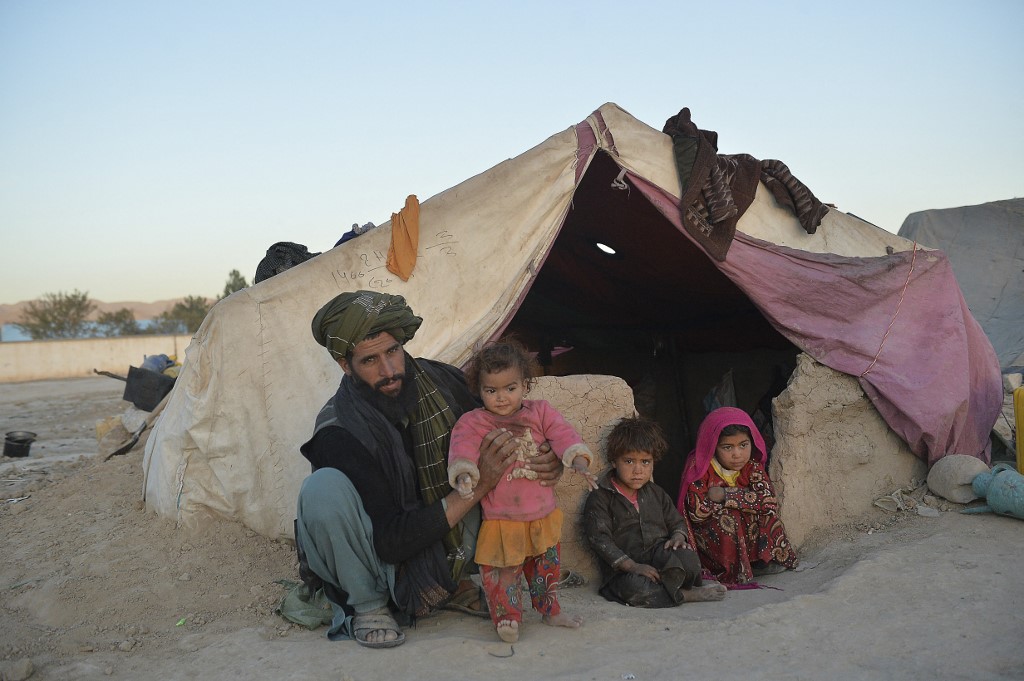 |
"The old man told me, 'I'm paying for the girl. It's none of your business what I'm doing with her ... that's my business,'" Malik told CNN.
The ominous warning weighs heavily on him as he considers the bleak days ahead. The cold is creeping in, and snow has already begun coating parts of the country. When the money from Parwana's sale runs out, he will be back at square one -- with three daughters and a son still at home to support.
"As I can see, we don't have a future -- our future is destroyed," he said. "I will have to sell another daughter if my financial situation doesn't improve -- probably the 2-year-old."
References:
edition.cnn.com - By Anna Coren, Jessie Yeung and Abdul Basir Bina, CNN
timesofisrael.com - By AFP and TOI STAFF
opindia.com - OpIndia Staff
 Support Us
Support Us
Satyagraha was born from the heart of our land, with an undying aim to unveil the true essence of Bharat. It seeks to illuminate the hidden tales of our valiant freedom fighters and the rich chronicles that haven't yet sung their complete melody in the mainstream.
While platforms like NDTV and 'The Wire' effortlessly garner funds under the banner of safeguarding democracy, we at Satyagraha walk a different path. Our strength and resonance come from you. In this journey to weave a stronger Bharat, every little contribution amplifies our voice. Let's come together, contribute as you can, and champion the true spirit of our nation.
 |  |  |
| ICICI Bank of Satyaagrah | Razorpay Bank of Satyaagrah | PayPal Bank of Satyaagrah - For International Payments |
If all above doesn't work, then try the LINK below:
Please share the article on other platforms
DISCLAIMER: The author is solely responsible for the views expressed in this article. The author carries the responsibility for citing and/or licensing of images utilized within the text. The website also frequently uses non-commercial images for representational purposes only in line with the article. We are not responsible for the authenticity of such images. If some images have a copyright issue, we request the person/entity to contact us at This email address is being protected from spambots. You need JavaScript enabled to view it. and we will take the necessary actions to resolve the issue.
Related Articles
- US Justice Department takes down 36 Iranian websites from Iranian Islamic Radio and Television Union and KH: Read full details
- 130 attackers arrested in Noakhali, Bangladesh for violence against Hindus: So far out of thousands unnamed Islamists booked
- The ‘Sanghi propaganda’ trope on abduction and conversion of Sikh girls to Islam. Here is how this online tirade is an omen of impending danger
- Massive endorsement of anti-Grooming Jihad laws: Here are the takeaways from the Kashmir controversy and how Khalistanis swallowed a bitter pill
- ‘Go to haram restaurants and poison their food’: Ex-Australian ISIS bride now lives a free life in Turkey. Details
- Bengal: The Chilling Accounts Of Families Of Two BJP Workers Who Can Return Home Only If The Women Are ‘Given Up’ To Trinamool Gangsters
- Violence Against Minority Hindus in Bangladesh: The Mistier World Of Silence
- Bizarre argument by Alt News in defense of Muslim man ‘spitting on food’ in viral video
- Supreme Court dismisses plea seeking protection of Hindus from the Muslim community in Mewat
- Greece bans Halal slaughter for being inhumane
- Twitter rewards an Islamist org, set to be banned by India, with a verified blue tick: Here is what PFI has done in the past
- Ex-radicalised Muslim author studies mosques in UK, reveals Taliban, ISIS-like lifestyle of the ultra-orthodox community
- ‘State in denial, admin lied about no complaints being filed, prima facie evidence of violence’: Everything Calcutta HC said on Bengal post-poll violence
- ‘Sarkar ko Jhukana and, Hindu-musalman karwana hai… Need to finish Hindus, make a separate nation for Muslims’: Govt counsel continues to present scathing evidence to oppose bail to Umar Khalid
- Thousands of Germans forced to flee own country and take refuge in Paraguay to escape extreme hostilities from Muslim migrants: Sharia law in many parts of England, London becoming “capital of Islamist Caliphate”





















